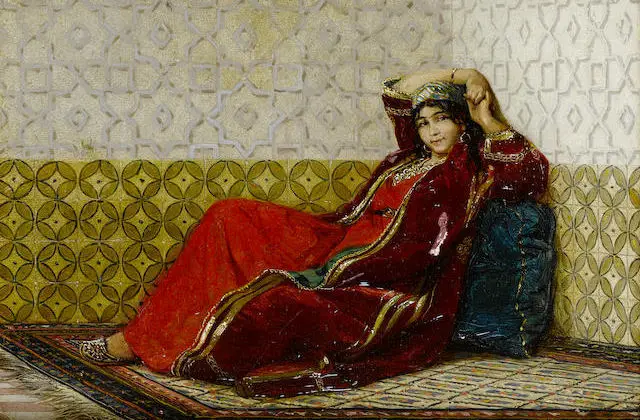Jonathan Dodd’s latest column. Guest opinion articles do not necessarily reflect the views of the publication. Ed
Sometimes I wake up in the morning and feel full of energy and interesting ideas. The world looks like a playground for my mind, the sun is shining, and the air is warm and balmy. I like balmy, it’s got that nice comforting feel about it, like being wrapped in a blanket. You feel like nothing bad could happen to you if you’re within a stone’s-throw of a pocket of balminess. A soft, non-harmful stone, of course.
This makes complete sense, of course, in a linguistic way. We use lip balm, and a balm is any ointment with oil and fragrance in it that soothes skin and senses. Nice. The application of balm is always a pleasant and pleasurable experience. It’s odd that such experiences are almost universally appreciated by women, but seen somehow as wrong or unnecessary or vaguely sinister by men.
There was often a frisson of unpleasantness
I knew an aromatherapist once. She studied the art of Swedish Massage thoroughly, bought all the kit and the bench and oils, and bought pleasant ambient music, and made almost enough money from her practice to pay for these expenses. She almost never had appointments with male persons, and when she did there was often a frisson of unpleasantness around, as if from the nature of the experience might be threatened by other thoughts and desires. Knowing men, as I do, I’m not surprised by this.
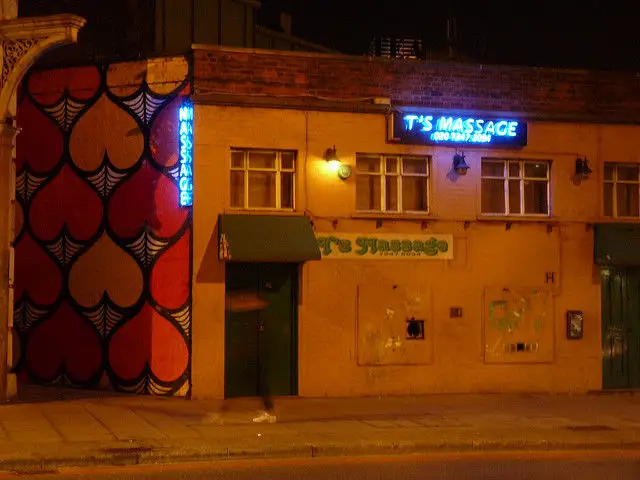
Some of the few men who responded to her adverts kept asking in veiled terms what services she offered, and kept implying that they knew she would eventually tell them that she offered the service they really wanted. When she asked me why she had to deal with that sort of phone call, the whole idea made me feel obscurely ashamed. Not personally ashamed, more ashamed for those representatives of my gender who were so unaware or uncaring, or maybe so desperate, that they just kept on in the hope or belief that she might say something different.
I’m assuming they were lonely
Such moments were not balmy. I suppose it takes all types, as they say. And I did feel sorry for those men, obviously suffering from a lack of something, and making very bad attempts to remedy whatever it was. I’m assuming they were lonely, and had dreams about relationships with women, but didn’t know how to do that, and consequently started from the wrong end, so to speak. I felt sorry for them because they had nobody they could talk to who would be able to advise them.
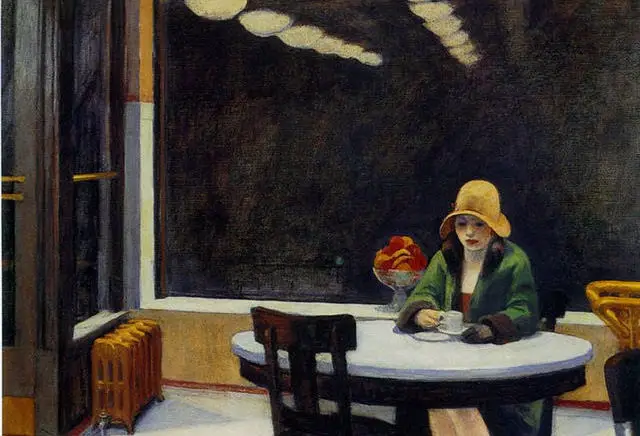
I assume that women have a corresponding problem, but with a different emphasis. I hear many of them complaining that there don’t seem to be any ‘good’ men left. I hear in their voices the same yearning for companionship as those lonely men, expressed through the thing they feel they miss the most. There has always been a gap here, but we seem to have lost the art of being open to possibilities. We’ve started to think about what attracts us, but we haven’t gone far enough. We set our minds on one or two specific things we want, and we disregard the rest.
People will not be honest about themselves
I had a brief spell of Internet dating, thankfully and joyously resolved, and I’m very glad I don’t have to be doing that again. It was not without its merits, and there was always the thrill of possibility. But the process felt to me to be too narrowing. The problem is that people, when given the opportunity, will not be honest about themselves, they’ll present an idealised version to the waiting queues of people, without thinking ahead enough to wonder what perspective suitors will think when they meet. They also load their lists of what would not be acceptable, so that hardly anyone would qualify.
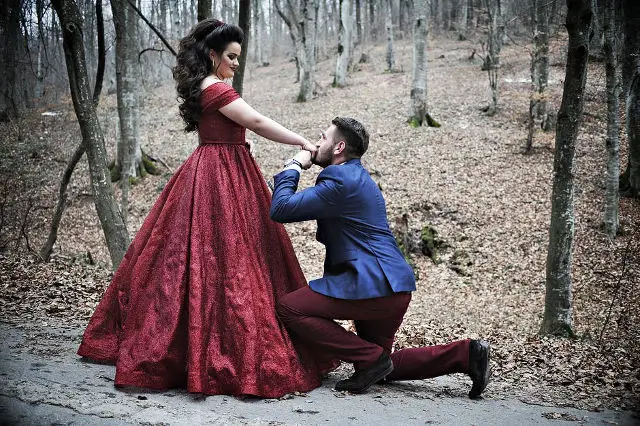
I do understand why people should do this, but it’s counter-intuitive. I once heard about a bizarre divorce case in America, where a married couple had built themselves characters in one of those alternative reality computer worlds. Apparently one partner started an affair with someone else in the simulated world, and when their real partner discovered this, they sued for divorce. Pictures of their electronic alter egos appeared in the press, he built like a body-building warrior, and she like a princess from the Arabian Nights. Pictures were also shown of the couple themselves, both alarmingly obese.
The difference between what they expected and what they saw
I felt sorry for that couple. I also felt sorry for the women whose profiles I saw, full of bravado and hope, but so built-up with what they wanted to portray that I couldn’t get any idea of the real person hiding behind it all. I had assumed that it was a dating site, and I was serious, so I thought about all the things about me that people could object to and featured them, in the expectation that only people who were serious would contact me.

I met various people, some of whom became friends, and I spent as little time as possible with some because it just wasn’t happening. All this is to be expected, of course, but I wondered about all those meetings where both parties turn up only to be bitterly disappointed by the difference between what they expected and what they saw. My thoughts about how it would be possible to set up a dating site for serious people only, were interrupted by not needing to do it any more.
Pretend you mean what you’re saying
We have a lot of rules and regulations and legal constraints in this country governing advertising in almost all of its manifestations. Gone are the days when cigarette companies could dress up actors as doctors and lie about the medical evidence, saying there was absolutely no reason why anyone should need to give up smoking. They’re still trying to do that, of course, but it doesn’t work so well. And we still get a lot of people denying that climate change exists, for the same reasons, and without reasonable reasons to do so, other than greed and fear and a willingness to turn your face away from the truth and pretend you mean what you’re saying.

We end up with such a strange combination of too much care over many things, and no restraint over some others. I have long wondered about this. In England we understand that a dumb person has no power of speech, temporarily or permanently, and this is recognised as a difficulty or a disability. Anyone discriminating against a dumb person, or calling into questions their rights or abilities because of this disability faces possible legal consequences, the same as any other hate-speech. We no longer can say that we didn’t mean any offence.
People can be really dumb
We all know that there are things we cannot say. We may still harbour evil thoughts about people, we may try to tell ourselves that it’s all a silly fuss, and we may make jokes about ‘PC gone mad’, but we have a healthier and safer society because of that. In America they have the same kind of rules and regulations. You can get into a lot of trouble for discriminating against deaf people, and you can’t in polite circles call anyone fat or short, or refer in discriminatory terms to a person with disabilities. Except they seem universally to use the word ‘dumb’ as a term of abuse, implying stupidity. I don’t understand this. Why go to all the trouble to make sure that disability or race or religious belief are no-go areas for prejudice, but leave the field open for dumb people to be abused willy-nilly? People can be really dumb.
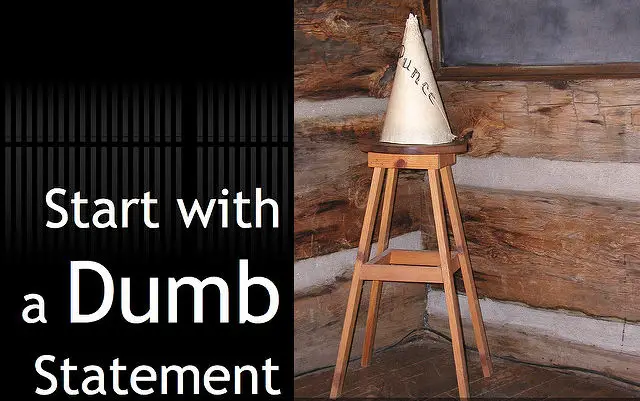
We know that discrimination exists. We probably all have mixed feelings about various kinds of people, or aspects about various kinds of people, and we struggle sometimes to keep our speech within the right parameters. And this is a good thing, because it keeps us thinking about doing it right, which all adds to the health of our society, and ultimately to the safety of our streets.
‘Disgusted of Tunbridge Wells’
I don’t know why we pronounce ‘balmy’ the way we do. It also reminds me of one of my father’s favourite words – ‘barmy’, meaning crazy or ridiculous, and, this being English, pronounced in exactly the same way, although it was my dad’s habit to add lots of emphasis. Rather in the way of – ‘I don’t believe it!’ from Victor Meldrew, or ‘I ask you!’ from Uncle Richard in the Camomile Lawn. There’s a certain unmistakable voice you can’t miss, uttered by middle-aged to elderly Englishmen of a certain type. ‘Disgusted of Tunbridge Wells’ probably sounds the same.

Sadly, I probably fit into the same category, although I certainly maintain that you can be a left-wing ‘Disgusted’ just as easily as a Tory one. My father had a list of people and things that were ‘barmy’, and which caused him to stomp from the room, muttering. ‘Stomp’ was another favourite. It has just occurred to me that it could have been his way of not losing his temper. I was always aware that he had a temper, but I hardly ever saw him lose it.
We become better people, rather than people forced to behave differently
My father also was quite happy to make utterances in normal conversation that would be totally unacceptable nowadays. There was quite a range of groups he referred to in this un-PC way too, although he never meant to be unkind. It was just normal for those days. And he was unvaryingly kind and gentlemanly in his direct dealings with everyone, even if he muttered about them under his breath afterwards.
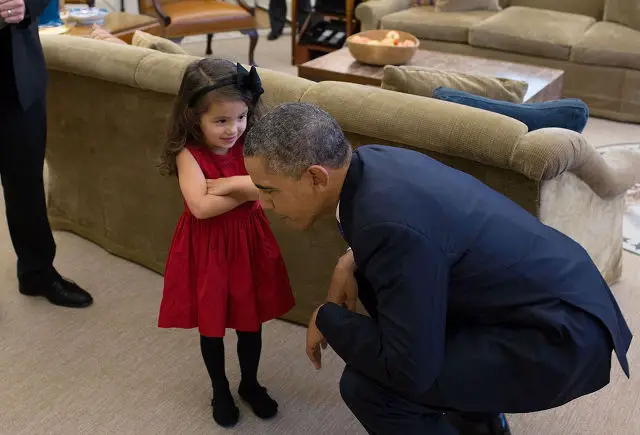
I’ve always thought that we are what we say to ourselves, and I like the idea of equality legislation because we stop saying things out loud so we learn generally to stop saying them internally, and we change our behaviour and thus over time we become better people, rather than people forced to behave differently. It’s like drink-driving or seatbelts or motorbike helmets. It’s now unthinkable in most circles to drink and drive, although we haven’t got a grip yet on the bicycle-helmet or mobile-phone-while-driving issues.
A huge residue of old attitudes still being thought vigorously
The problem is always those who feel that their basic rights are being abused by being forced to love their neighbours rather than being angry with them. Certain hatreds are very deep-seated, like racism, or prejudice about Jews or Muslims or gay people. These attitudes still cause problems, not to mention the difficulties these various groups endure every day. Yes, it persists, and yes, nobody’s perfect, and yes, we should be better, and yes, nobody should hurt anyone else. But they still do, and that’s the tip of the iceberg. Underneath the surface is a huge residue of old attitudes still being thought vigorously inside so many peoples’ heads.

How many people who profess that gays are all right, still fear and loathe them secretly, underneath the smiles? How many men still harbour those old attitudes towards women in their hearts, and wish things would revert to ‘the way they were’, whatever that means? I’m sure all Jews can tell much easier than me, and Muslims, and Gays. And women only have to point to the violence and continuing small-scale discrimination they have to endure all the time.
The every-day grinding relentless drudgery of real discrimination
I get into enough trouble with the things I believe, but I know it’s as nothing compared to the every-day grinding relentless drudgery of real discrimination. We now have a gay parade. That’s a small improvement. When no gay person or woman or immigrant is abused or beaten up, and feels he or she can walk the streets like everyone else, then we might begin to feel like we’re improving.
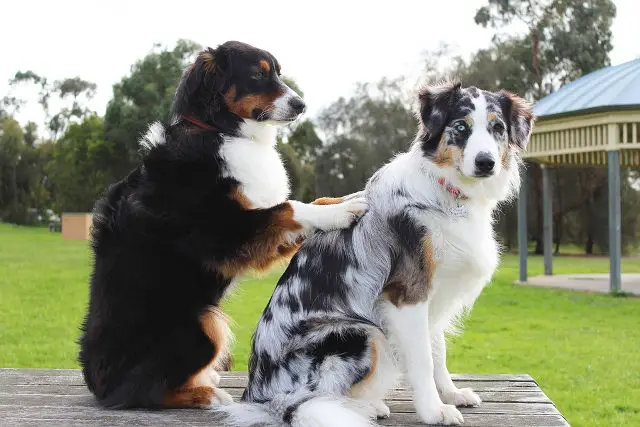
And it would be marvellous if aromatherapists didn’t feel the need to worry about phone calls from potential male clients. Until then it’s all still an uphill struggle.
If you have been, thank you for reading this balmy or barmy thing.
Image: Bonhams: Public Domain
Image: ganmed64 under CC BY 2.0
Image: repolco under CC BY 2.0
Image: Pixabay under CC BY 2.0
Image: The Bridgeman Art Library – Public Domain
Image: Zak under CC BY 2.0
Image: cogdog under CC BY 2.0
Image: David Anstiss under CC BY 2.0
Image: Official White House Photo by Lawrence Jackson under CC BY 2.0
Image: sashafatcat under CC BY 2.0
Image: Pixabay under CC BY 2.0

